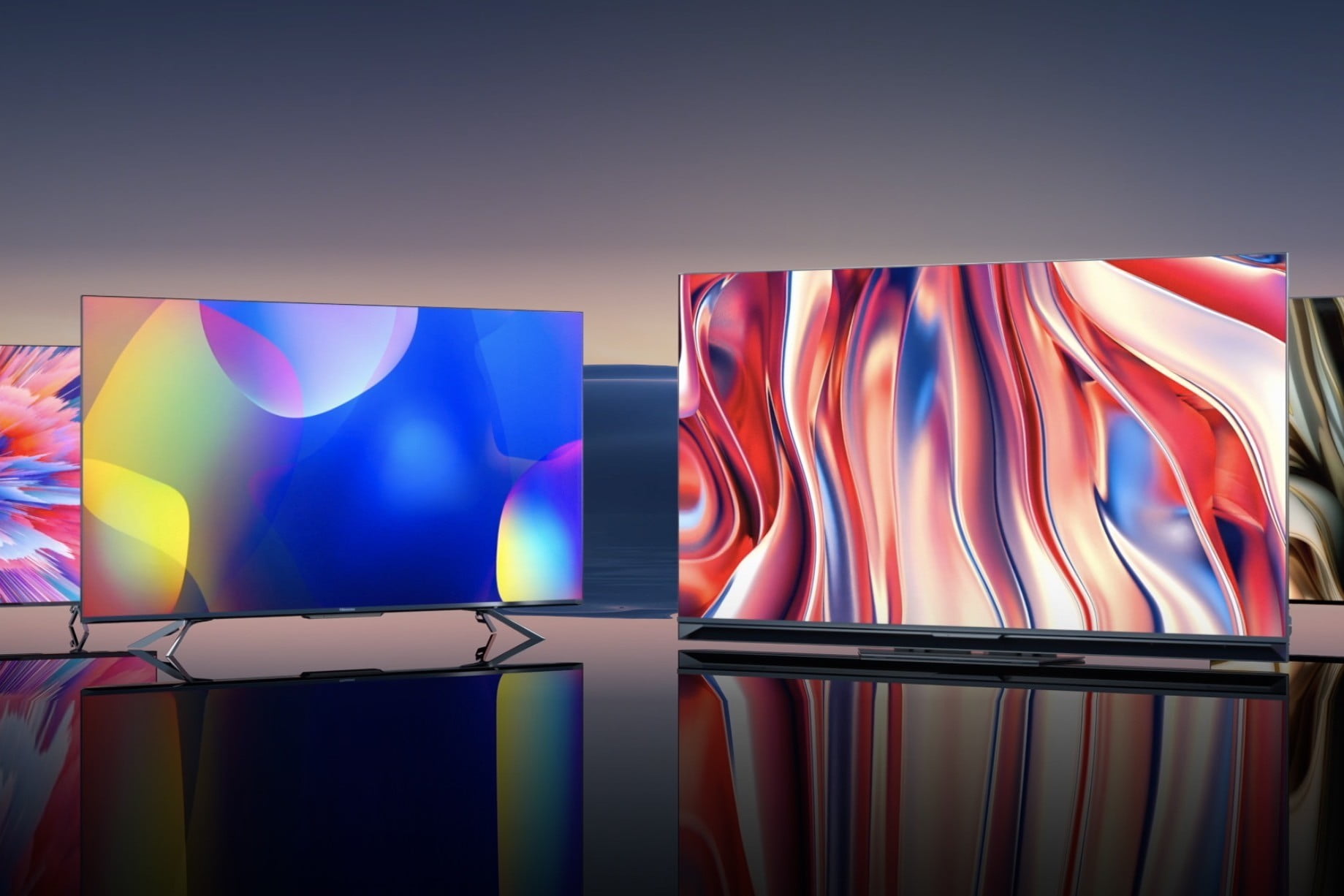In just a few years, Hisense has evolved from a relatively obscure brand to a company that makes an impressive range of affordable and feature-rich 8K, 4K, and laser TVs. At the end of 2021, the company finally debuted its first 8K TV, the U800GR, but at CES 2022, the company has revealed how the rest of its 4K products will benefit from new technologies like mini-LED backlighting, advanced gaming features, and Google TV, which replaces the older Android TV system on all of Hisense’s non-Roku TV ULED models.
Here’s the full run-down.
U9H Series
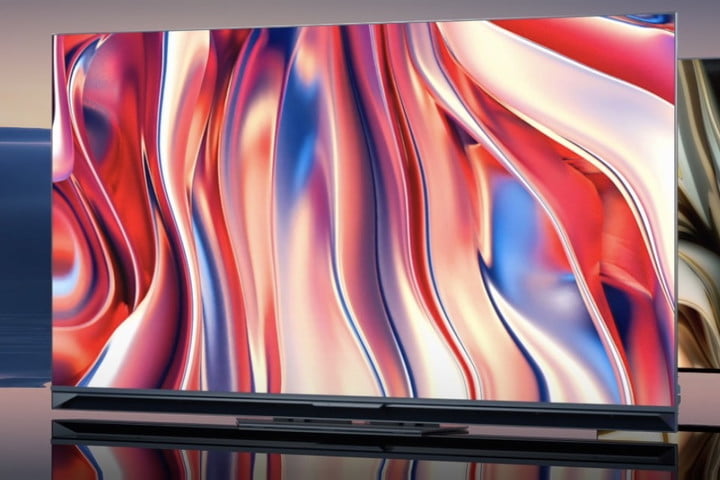
In 2021, Hisense introduced its flagship 4K TV, the U9DG, a display that uses a clever, so-called dual-cell backlight system. The concept behind dual-cell is that if you place a grey-scale LCD panel in front of the LED backlight but behind the color LCD panel, you can get close to the pixel-level light control that OLED panels offer.
Unfortunately, as our U9DG review points out, the reality fell short of these expectations, producing an image that was indeed brighter than OLED, but not as punchy as the best QLED TVs, and which couldn’t get as black as OLED. All for a fairly high price of $3,500 for the 75-inch model.
Now, Hisense has introduced the U9H, a new flagship for the 4K line, but this time, Hisense has incorporated mini-LED backlights, which have already proven themselves to be a better way for non-OLED TVs to achieve near-OLED-level contrast, color, and black levels. With more than 1,280 full-array local dimming zones and up to 2,000 nits of peak brightness, it certainly sounds impressive. We can’t say whether Hisense has given up on its dual-cell technology, but clearly, it remains a niche feature in the company’s lineup.
Hisense claims its ULED technology takes advantage of the benefits of mini-LED by enabling a “seamless relationship” between hardware and software, which apparently produces enhanced color, contrast, motion, and brightness. An upgraded processor can perform automatic adjustments in real-time, continuous scene-by-scene modifications, and fine-tuning of each frame at a pixel level, while the 120Hz native refresh rate provides smooth clarity and motion handling.
There’s also the usual list of premium features you’d expect on a top-tier TV: Quantum dot LED, Dolby Vision, Dolby Vision IQ, and HDMI 2.1 options like eARC, auto low latency mode (ALLM), Game Mode Pro, variable refresh rate (VRR), and support for AMD’s FreeSync.
The U9H also has an upgraded built-in sound system with speakers embedded in both the top and bottom of the TV for a 2.1.2 surround sound configuration. Also onboard is Dolby Atmos and support for the WiSA wireless speaker platform.
U8H Series
While we weren’t especially impressed with the U9DG, the 2021 U8G definitely caught our attention. Our reviewer even felt it was the best TV Hisense had made to date thanks to its amazing brightness. For 2022, the U8 (now the U8H) is also getting the mini-LED treatment, which should improve contrast and black levels while retaining the U8G’s excellent brightness. The U8H also keeps the previous generation’s 120Hz native panel, and 1,500 nits peak brightness (which is likely even brighter when you get it home as Hisense tends to understate its brightness stats).
As with the U9H, there are plenty of other features on tap like IMAX enhanced, FilmMaker Mode, Dolby Vision, Dolby Vision IQ, and HDR10+. HDMI 2.1 gaming features include ultra-high-speed connections, ALLM, VRR (with AMD Freesync), 4K@120Hz, and Hisense’s own Game Mode Pro. HDMI eARC and WiSA support are also built in, as is Dolby Atmos. The embedded far-field mics let you take advantage of Google Assistant hands-free, and the TV also works with Alexa if you have an Alexa-capable phone or smart speaker.
The U8H is also ready for the next chapter in free OTA TV, with a built-in NextGen TV (ATSC 3.0) tuner. In addition to the previous 65-inch model, the U8H will also be offered in a 75-inch size.
U7H Series
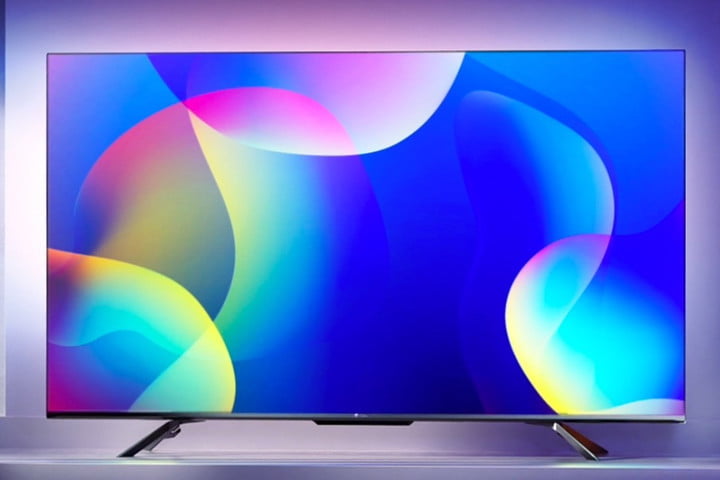
The 2021 U7G was also a strong performer, with our reviewer commending it for its impressive backlight control, excellent blacks, and its gaming-friendly features. Not much has been changed for 2022, which we’d argue is probably a good thing.
Google TV now takes the place of the older Android TV interface, the TV offers WiSA and a built-in NextGen TV (ATSC 3.0) tuner. Other than these modest changes, the other great features remain the same: IMAX enhanced, FilmMaker Mode, Dolby Vision/Dolby Vision IQ, HDR 10/10+/adaptive, ALLM, VRR (with FreeSync), 4K @ 120Hz gaming, Dolby Atmos, and eARC. Google Assistant is available hands-free via the embedded microphones and the U7H also works with Alexa.
U6H Series
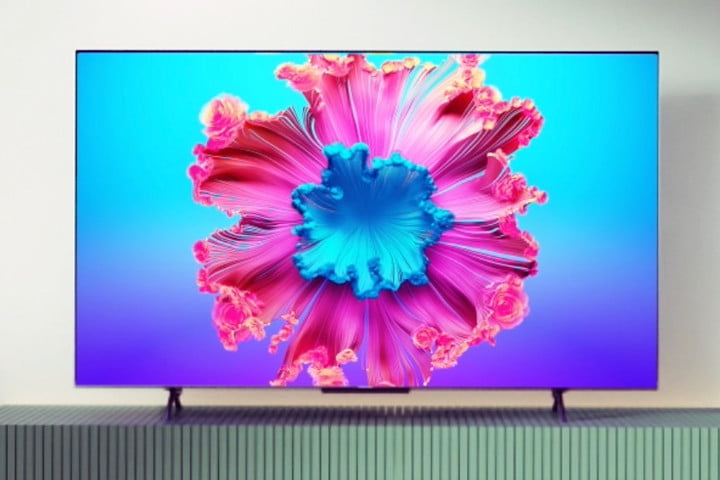
As Hisense’s most affordable ULED TV, the U6 keeps the features that have made it such a good value, like quantum dot color, full-array local dimming (FALD), and Dolby Vision/Dolby Atmos, but the U6H adds some nice upgrades too: Google TV, Dolby Vision IQ, HDR 10/10+/adaptive, HDMI 2.1 with VRR, eARC, and far-field mics so you can use Google Assistant hands-free.
Hisense prices for the U6H will start at $580, but we don’t yet know which sizes will be available.
A7H, A6H, and A4H Series
Hisense’s non-ULED TV models are also getting some nice upgrades for 2022. The 85-inch A7H offers a wide color gamut and Dolby Atmos, and both the A7H and A6H, screen sizes 43 to 75-inches, are equipped with Google TV, Dolby Vision HDR+/HDR10; eARC, ALLM, and Dolby Atmos. Both the A7H and A6H are 4K TV models.
The 2K A4H, which ranges from 32- to 43-inch screen sizes, has a new bezel-less design and uses Android TV.
Hisense Laser TVs
PX1-Pro TriChroma Laser Cinema
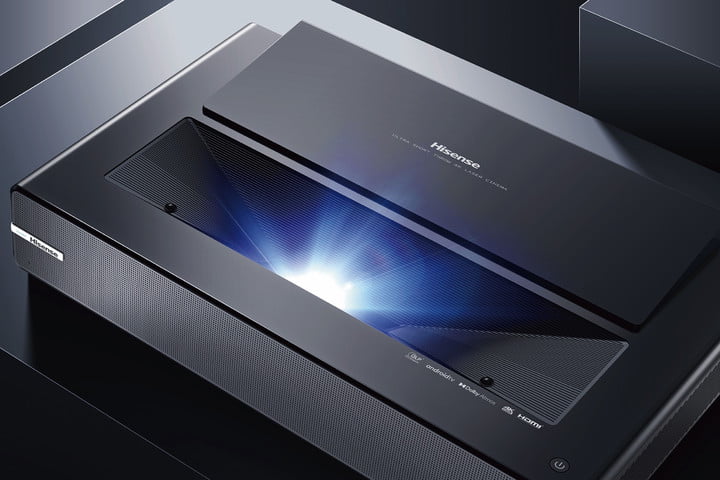
The PX1-Pro TriChroma Laser Cinema is a new laser TV model for 2022. It’s a 4K, ultra short throw projector that uses the same TriChroma laser engine as the L9G below — a three-color laser system that delivers better picture quality than laser TVs that use only two colors or a single color. The PX1-Pro also has a new digital lens focus system that lets you adjust the image size from 90 to 130 inches, giving owners greater flexibility than the L9G and L5G, each of which have fixed image sizes of either 100 or 120 inches.
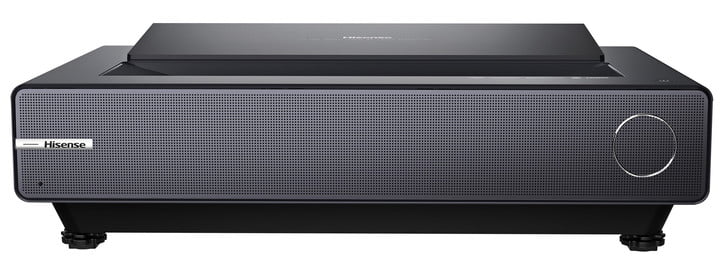
With more than a billion colors and a 60Hz native refresh rate, the PX1-Pro has features we’re not used to seeing on projectors, like Dolby Vision, HDR10, and Filmmaker Mode. It also supports Dolby Atmos playback, HDMI eARC, and ALLM. It’s also the first laser TV we’ve seen to offer WiSA capability — a very handy feature for a projector. The Android TV operating system with built-in WiFi and Bluetooth supports Google Assistant and it also works with Alexa.
L9G TriChroma Laser TV
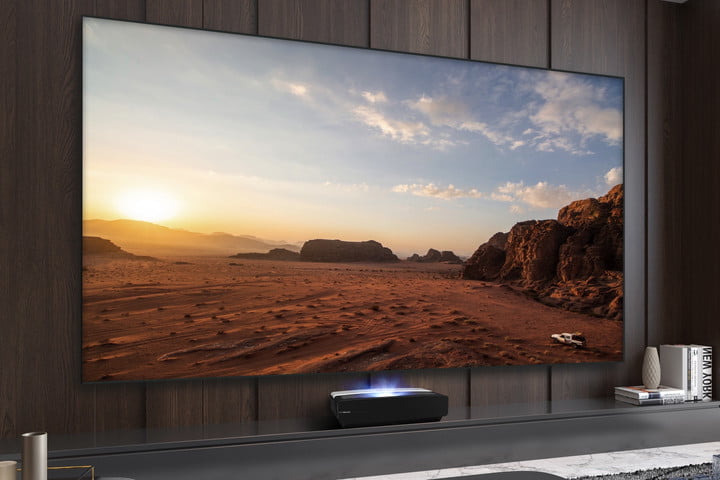
Essentially unchanged from 2021, the L9G continues to be one of the most affordable three-color laser projection systems you can buy, with up to 3000 lumens peak brightness. For 2022, the L9G adds Dolby Vision, making it compatible with a wide variety of movies on Blu-ray and from streaming video services like Netflix, Disney+, and Apple TV+.
L5G 4K Smart Laser TV
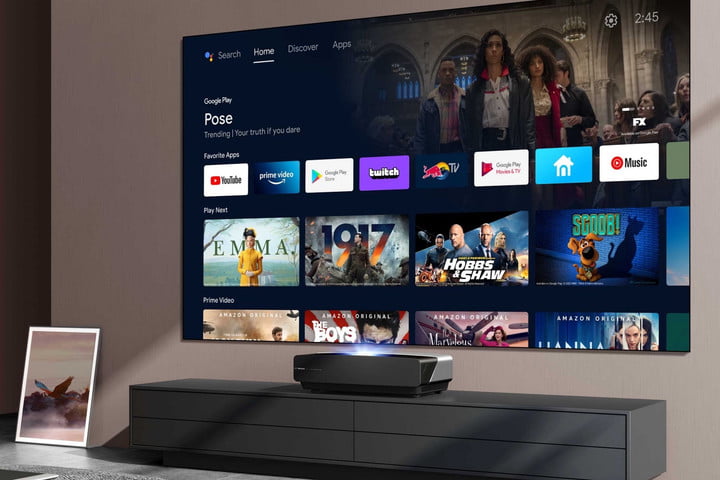
The 2022 L5G also gets Dolby Vision as well as Filmmaker Mode. The embedded 30-watt speakers now support Dolby Atmos. Its HDMI ports are also getting a welcome upgrade with support for HDMI eARC, ultra high speed, and ALLM for a better gaming experience.
Hisense soundbars
Hisense also brought along a pair of new soundbars to the show:
Hisense U5120G

A simple system with just a soundbar and a wireless subwoofer the U5120G nonetheless pumps out an impressive 480 watts of power through a series of 12 drivers. Details on its other specs and features haven’t been released, but we know it supports HDMI eARC and DTS:X. Normally DTS:X soundbars also support Dolby Atmos, but Hisense hasn’t confirmed Atmos support at this time.
Hisense U5120GW+

With 570 watts of power and a total of 14 drivers, the U5120GW+ is a 7.1.2-channel Dolby Atmos-capable soundbar with dedicated up-firing speakers. We don’t have any details on its full complement of ports, but Hisense says it will support HDMI eARC and hi-res audio, which suggest there will be Wi-Fi connectivity in addition to wired connections and Bluetooth.
